In this article, we will explore the world of pest control technicians and take a closer look at their roles, responsibilities, and earnings. Whether you’re curious about the daily tasks of these unsung heroes or considering a career in pest control yourself, we’ve got you covered. From identifying and exterminating pests to providing helpful advice and preventive measures, pest control technicians play a crucial role in keeping our homes and businesses free from unwanted critters. Additionally, we’ll touch on the earnings potential in this field, revealing the possibilities that await those who embark on this rewarding profession. So, join us as we uncover the fascinating world of pest control technicians and shed light on the important work they do.
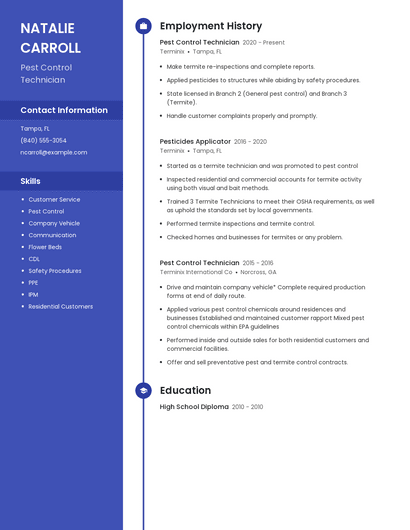
Roles of Pest Control Technicians
Pest control technicians play a crucial role in maintaining a pest-free environment for both residential and commercial properties. Their primary responsibilities include identifying and diagnosing pest problems, developing pest control plans, implementing appropriate measures to control pests, educating customers about pest prevention, inspecting and monitoring pest activity, using appropriate equipment and chemicals, and keeping records and documentation.
Identifying and diagnosing pest problems
One of the key roles of a pest control technician is to identify and diagnose pest problems. This involves conducting thorough inspections of the premises to determine the type and source of infestation. By carefully examining the affected areas, they can identify the pests responsible and devise appropriate treatment methods. Their knowledge of pests and their behavior allows them to accurately diagnose the problem and provide effective solutions.
Developing pest control plans
Once a pest problem has been identified, pest control technicians are responsible for developing comprehensive pest control plans. These plans outline the steps and strategies that need to be taken to eradicate the pests and prevent future infestations. By considering the specific needs of each property and the extent of the infestation, technicians can create customized plans that address the unique challenges presented by each situation.
Implementing pest control measures
After developing the pest control plans, technicians are tasked with implementing the necessary measures to control and eliminate pests. This may involve applying pesticides, setting traps, or using other appropriate methods depending on the type of pest and the severity of the infestation. Technicians must ensure that the treatments they use are safe and effective, following safety protocols and regulations to protect both themselves and the environment.
Educating customers about pest prevention
A crucial aspect of a pest control technician’s role is to educate customers about pest prevention. They provide valuable information and advice on how to avoid future infestations by taking preventive measures. This may include sealing cracks and openings, keeping the property clean and free of food debris, and implementing proper waste management practices. By sharing their knowledge, technicians empower customers to play an active role in maintaining a pest-free environment.
Inspecting and monitoring pest activity
To ensure the effectiveness of pest control measures, technicians are responsible for inspecting and monitoring pest activity on an ongoing basis. Regular inspections allow them to assess the success of previous treatments and identify any new pest issues that may arise. By closely monitoring the pest activity, technicians can make necessary adjustments to their pest control plans and provide timely solutions to prevent further infestations.
Using appropriate equipment and chemicals
Pest control technicians are trained to use a range of equipment and chemicals to carry out their work effectively. They are knowledgeable about the different types of treatments available and understand which methods and products are most suitable for specific pests. Technicians must handle and apply pesticides and treatments according to regulations to ensure both the safety of the environment and the effectiveness of the treatments.
Keeping records and documentation
Another important responsibility of pest control technicians is to keep accurate records and documentation of their work. This includes detailing the types of pests encountered, the treatments applied, and the outcomes achieved. By maintaining comprehensive records, technicians can track the success of their interventions and provide necessary information to customers and regulatory authorities.
Responsibilities of Pest Control Technicians
In addition to the roles outlined above, pest control technicians have a range of specific responsibilities that contribute to their overall effectiveness in the field.
Conducting thorough inspections of premises
A key responsibility of pest control technicians is to conduct thorough inspections of premises to identify the presence of pests and assess the extent of infestations. This involves using their knowledge and expertise to carefully inspect all areas of a property, looking for signs of pest activity such as droppings, damage, or nests. By conducting detailed inspections, technicians can accurately determine the most appropriate treatment methods.
Identifying the type and source of infestation
Once an infestation has been identified, pest control technicians are responsible for identifying the type and source of the infestation. This requires a deep understanding of different pests and their behavior. By accurately identifying the pests involved, technicians can tailor their treatment strategies to effectively eliminate them and prevent future infestations.
Determining the extent of the pest problem
After identifying the type and source of infestation, technicians must determine the extent of the pest problem. This involves assessing the size of the infestation, the areas affected, and the potential risks to the property and its occupants. By understanding the scope of the problem, technicians can develop appropriate treatment plans and allocate the necessary resources to resolve the issue.
Advising and informing customers about treatment options
Pest control technicians play a crucial role in advising and informing customers about treatment options available to them. They must communicate clearly and effectively, explaining the different methods and strategies that can be used to eradicate pests. By providing detailed information, technicians empower customers to make informed decisions about the best course of action to address their pest problems.
Using safe and effective pest control methods
A primary responsibility of pest control technicians is to use safe and effective pest control methods. They must adhere to safety protocols and regulations to ensure the well-being of both themselves and the environment. Technicians are trained to handle and apply pesticides and treatments responsibly, minimizing risks while maximizing the effectiveness of their interventions.
Applying pesticides and treatments according to regulations
As part of their responsibilities, pest control technicians must apply pesticides and treatments in accordance with regulations and industry standards. They must be familiar with local, state, and federal regulations governing the use of pesticides, ensuring that they are used in a manner that is safe and compliant. Technicians are also responsible for ensuring that appropriate protective equipment is used when handling and applying these substances.
Following safety procedures and using protective equipment
The safety of pest control technicians and their clients is of the utmost importance. Technicians must follow safety procedures and use protective equipment when carrying out their work. This includes wearing appropriate clothing, gloves, masks, and goggles to safeguard themselves from potential hazards. By adhering to safety protocols, technicians ensure a safe working environment for themselves and those around them.
Providing ongoing pest prevention recommendations
Pest control technicians have a responsibility to provide ongoing pest prevention recommendations to customers. This involves educating customers on proactive measures they can take to minimize the risk of future infestations. Technicians may offer suggestions such as sealing entry points, maintaining cleanliness, and implementing regular inspections to catch pest issues early. By providing ongoing advice, technicians help customers maintain a pest-free environment in the long term.
Skills and Qualifications Required
To excel as a pest control technician, certain skills and qualifications are necessary. These include:
Knowledge of pests and their behavior
Pest control technicians must have a solid understanding of different pests and their behavior. This includes knowledge of the habits, lifecycles, and environmental preferences of common pests. By understanding their behavior, technicians can develop effective treatment strategies and identify potential areas of infestation.
Understanding of different treatment methods
A strong understanding of different treatment methods is essential for pest control technicians. They must be familiar with a range of approaches, including chemical treatments, baits, traps, and exclusion techniques. By understanding the benefits and limitations of each method, technicians can select the most appropriate treatment options for specific infestations.
Ability to identify and diagnose pest problems
The ability to identify and diagnose pest problems accurately is a fundamental skill for pest control technicians. By being able to recognize signs of infestations and determine the type of pests involved, technicians can develop effective treatment plans. This requires attention to detail and a keen eye for detecting even the most subtle signs of pest activity.
Familiarity with safety protocols and regulations
Pest control technicians must be familiar with safety protocols and regulations governing their work. They must understand the safe handling and application of pesticides, as well as the appropriate use of protective equipment. It is important for technicians to stay up to date with local, state, and federal regulations to ensure compliance and safe practices.
Good communication and customer service skills
Effective communication and strong customer service skills are vital for pest control technicians. They must be able to explain treatment options and provide clear instructions to customers. Technicians should also demonstrate empathy and professionalism when dealing with customers, ensuring they feel confident in the technician’s ability to resolve their pest problems.
Physical stamina and ability to work in various environments
The work of pest control technicians can be physically demanding, requiring stamina and the ability to work in various environments. Technicians may need to climb ladders, crawl into tight spaces, or work outdoors in different weather conditions. It is essential for technicians to be physically fit and capable of performing the tasks required for their job.
Detail-oriented and organized
Attention to detail is crucial for pest control technicians. They must be meticulous in their inspections and treatments to ensure no areas or signs of infestation go unnoticed. Technicians also need to maintain accurate records and documentation, requiring strong organizational skills. Being detail-oriented and organized allows technicians to provide effective and efficient pest control services.
Valid pest control license and certifications
To work as a pest control technician, it is necessary to have a valid pest control license and any additional certifications required by local licensing authorities. These licenses ensure that technicians have received the necessary training and adhere to industry standards. Technicians should familiarize themselves with the specific requirements of their jurisdiction to ensure compliance.
Training and Education
Becoming a pest control technician typically requires a combination of education and training. The following are common requirements for entering the field:
High school diploma or equivalent
In most cases, a high school diploma or equivalent is the minimum educational requirement to become a pest control technician. This level of education provides a foundation of knowledge and skills necessary for success in the field.
Completion of a pest control training program
Many states and jurisdictions require individuals to complete a pest control training program. These programs provide comprehensive instruction on pests, their behavior, treatment methods, safety protocols, and regulations. Training programs may be offered by vocational schools, community colleges, or state agencies.
On-the-job training and apprenticeships
After completing a formal training program, pest control technicians typically undergo on-the-job training or apprenticeships. This allows them to gain practical experience under the guidance of experienced professionals. Through hands-on training, technicians refine their skills and develop a deeper understanding of pest control practices.
Continuing education and industry certifications
To stay current with industry best practices and to further their knowledge and skills, pest control technicians can pursue continuing education and industry certifications. These certifications demonstrate a technician’s commitment to professional development and provide a competitive edge in the job market. They may be offered by industry associations, regulatory bodies, or training institutions.
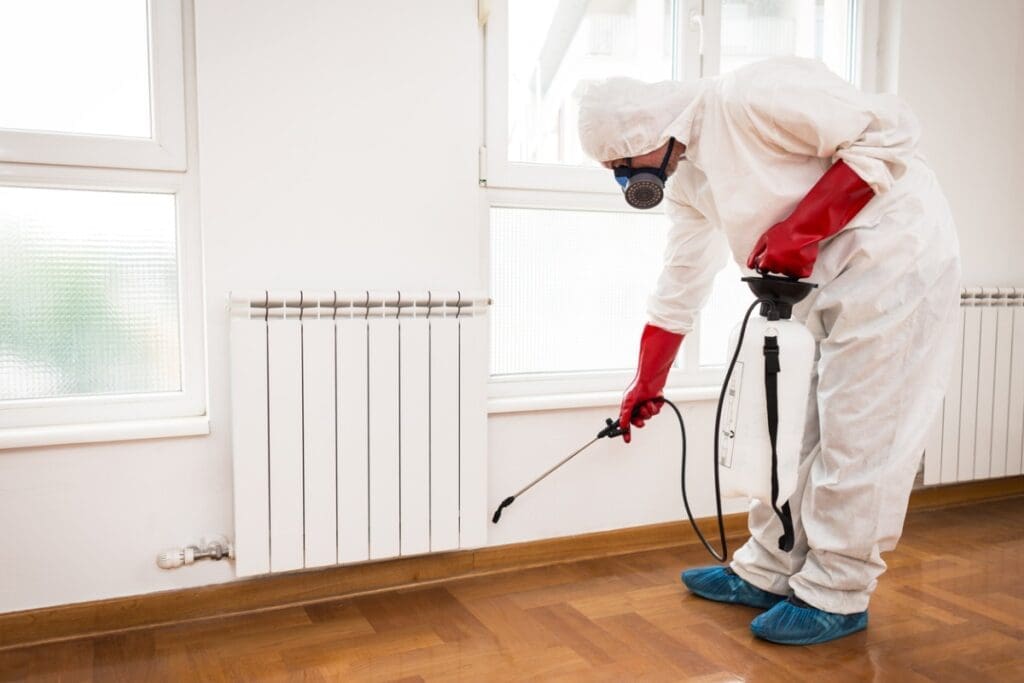
Work Environment
Pest control technicians work in a variety of settings, both indoors and outdoors. Understanding the work environment can help individuals considering a career in pest control make informed decisions.
Indoor and outdoor settings
Pest control technicians may find themselves working in a range of indoor and outdoor settings. They may be called to residential buildings, commercial establishments, agricultural facilities, or natural environments. The specific work environment depends on the type of pests being dealt with and the location of the infestations.
Exposure to various pests and chemicals
Working in pest control exposes technicians to various pests and the chemicals used to control them. Technicians must be prepared to handle and come into contact with pests that may pose health risks or cause discomfort. They also need to be knowledgeable about the chemicals used, understand their potential hazards, and take appropriate safety precautions.
Potential risks and hazards
Pest control work involves certain risks and hazards that technicians must be aware of and mitigate. These can include exposure to pesticides, bites or stings from pests, and injuries related to equipment or hazardous environments. It is crucial for technicians to follow safety protocols, use protective equipment, and stay informed about the potential risks associated with their work.
Traveling to different locations
Pest control technicians often travel to different locations to provide their services. This may involve driving or commuting to various properties throughout the day. Technicians should be prepared to work in different neighborhoods and adapt to the conditions of each location, whether rural or urban.
Working in residential and commercial buildings
Pest control technicians may find themselves working in a variety of residential and commercial buildings. They might provide services to homes, apartments, hospitals, schools, offices, restaurants, or warehouses. Each environment presents unique challenges and requires technicians to understand the specific needs and concerns of the property owners or managers.
Earnings and Job Outlook
For those considering a career as a pest control technician, understanding the earnings potential and job outlook can help inform their decision.
Average salary range for pest control technicians
The average salary range for pest control technicians can vary depending on factors such as experience, location, and the company they work for. According to the U.S. Bureau of Labor Statistics, the median annual wage for pest control workers was $37,330 as of May 2020. However, it is important to note that earnings can fluctuate based on individual circumstances and regional differences.
Factors influencing earnings
Several factors can influence the earnings of pest control technicians. Experience and specialization can play a role in earning potential, as more experienced technicians may be able to command higher salaries. The location of employment can also impact earnings, as some regions may have higher demand for pest control services than others. Additionally, the size and reputation of the employer can influence salary levels.
Opportunities for career advancement
Pest control technicians have opportunities for career advancement within the industry. With additional training and certifications, technicians can grow into supervisory or management roles. These positions may involve overseeing a team of technicians, managing client accounts, or even starting their own pest control businesses. Career advancement offers the potential for increased earnings and responsibilities within the field.
Job growth and employment prospects
The job outlook for pest control technicians is relatively positive. According to the U.S. Bureau of Labor Statistics, employment of pest control workers is projected to grow 5 percent from 2019 to 2029, which is faster than the average for all occupations. The demand for pest control services is driven by factors such as population growth, increased awareness of health and safety, and the need to protect property from pests.
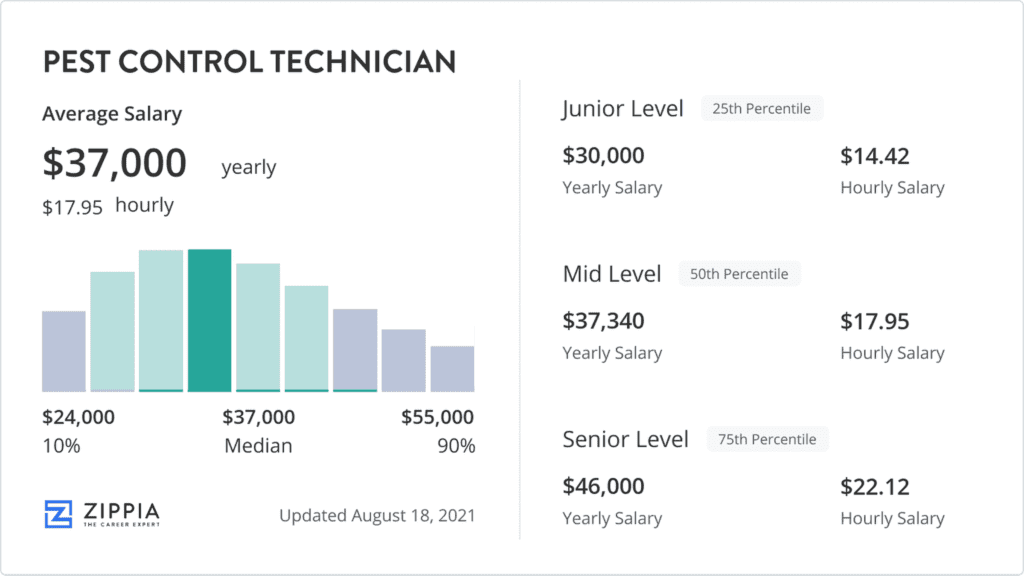
Benefits and Drawbacks of the Profession
As with any profession, being a pest control technician has its benefits and drawbacks. Understanding these can help individuals decide if the field aligns with their personal and professional goals.
Flexible work schedule
One of the benefits of being a pest control technician is the potential for a flexible work schedule. Technicians may have the ability to set their own hours or have a varied schedule depending on the needs of their clients. This flexibility can allow for a better work-life balance and the ability to pursue personal interests outside of work.
Opportunities for self-employment
Another benefit of the profession is the opportunity for self-employment. Pest control technicians with the necessary licenses, certifications, and experience can start their own businesses. This allows them to have greater control over their work, potentially higher earnings, and the ability to build their own brand and reputation in the industry.
Job satisfaction in helping customers
For individuals who enjoy helping others, being a pest control technician can be rewarding. Technicians have the opportunity to make a positive impact in their clients’ lives by resolving pest problems and creating healthier living environments. Providing effective solutions and seeing the gratitude of satisfied customers can contribute to a sense of job satisfaction.
Physical and environmental challenges
Being a pest control technician can involve physical and environmental challenges. Technicians may need to crawl into tight spaces, climb ladders, or use heavy equipment. Additionally, exposure to various pests and chemicals can pose health risks. It is important for technicians to maintain their physical stamina and take appropriate safety precautions to mitigate these challenges.
Potential exposure to health risks
Working with pests and chemicals can expose technicians to health risks. Pests may carry diseases or cause allergic reactions, and some chemicals used in pest control can be hazardous if mishandled. It is crucial for technicians to follow safety protocols, use protective equipment, and stay informed about the potential risks associated with their work.
Dealing with difficult and unpleasant situations
Pest control technicians must be prepared to handle difficult and unpleasant situations. They may encounter distressed clients who are frustrated or anxious about their pest problems. Dealing with pests themselves can also be unpleasant, as some infestations may involve large numbers of insects or rodents. The ability to remain calm, professional, and empathetic in these situations is essential.
Resources and Tools for Pest Control Technicians
Pest control technicians rely on various resources and tools to perform their jobs effectively and efficiently. These resources and tools include:
Protective clothing and equipment
To ensure their safety, pest control technicians must have access to appropriate protective clothing and equipment. This may include gloves, goggles, masks, coveralls, and respirators. Proper use of protective gear helps minimize the risk of exposure to hazards and safeguards technicians from potentially harmful substances.
Pest control products and chemicals
Pest control technicians require access to a range of products and chemicals to address different pest infestations. This includes pesticides, baits, traps, and insecticides. Having access to high-quality and effective products is essential for successful pest control interventions.
Industry publications and websites
Staying informed about the latest industry trends, regulations, and best practices is important for pest control technicians. Industry publications and websites provide valuable information on topics such as pest identification, treatment methods, safety protocols, and emerging pest control technologies. Continuous learning and staying up to date with industry advancements are crucial for career growth.
Training and educational materials
Pest control technicians benefit from access to training and educational materials that enhance their knowledge and skills. This can include online courses, workshops, webinars, and conferences. Training materials provide opportunities for technicians to learn new techniques, refine their skills, and expand their understanding of pest control practices.
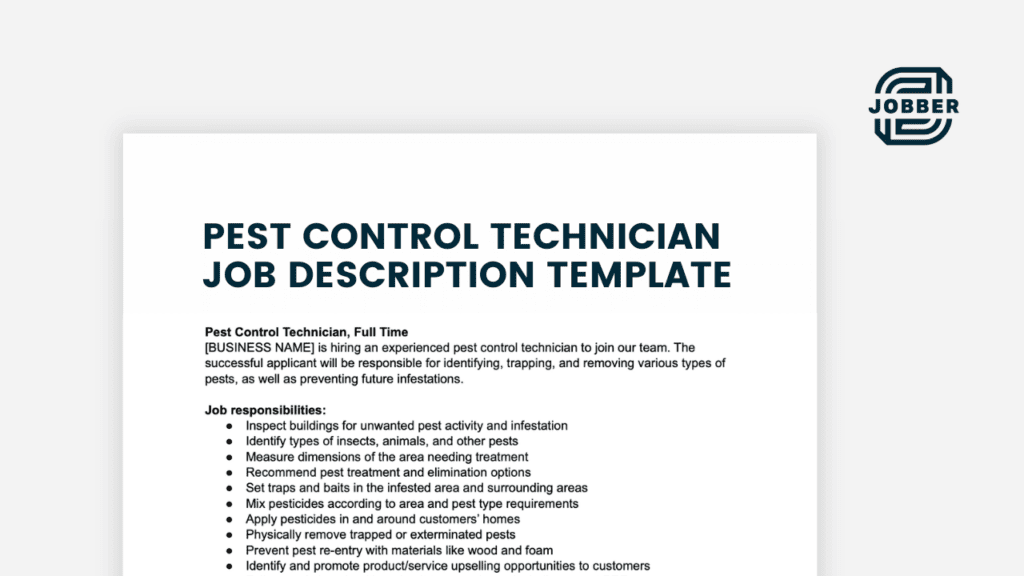
Building a Successful Pest Control Business
For those considering starting their own pest control business, there are several key steps to take to ensure success:
Establishing a business plan
A solid business plan is essential for any entrepreneur. It serves as a roadmap for the business, outlining the goals, strategies, financial projections, and marketing plans. A well-developed business plan helps guide decisions and provides a clear direction for the business.
Obtaining necessary licenses and permits
Starting a pest control business requires obtaining the necessary licenses and permits from local, state, and federal regulatory authorities. These licenses demonstrate compliance with industry regulations and ensure that the business meets legal requirements. It is essential to research the specific licensing requirements for the region in which the business is operating.
Investing in quality equipment and products
To deliver effective pest control services, investing in quality equipment and products is crucial. This includes ensuring technicians have access to the appropriate tools, such as sprayers, bait stations, and monitoring devices. Quality products and chemicals are also necessary to provide reliable and sustainable pest control solutions.
Developing a marketing strategy
A robust marketing strategy is essential for attracting customers and growing a pest control business. This includes identifying the target market, developing a strong brand, and utilizing various marketing channels such as online advertising, social media, and targeted direct mail campaigns. Creating a positive online presence through a professional website and customer testimonials can also help attract new clients.
Building a network of customers and referrals
Word-of-mouth referrals are valuable for a pest control business. Building a network of satisfied customers and establishing strong relationships with other professionals in related industries (such as real estate agents, property managers, and environmental health departments) can generate referrals and create mutually beneficial partnerships. Encouraging satisfied customers to provide reviews and testimonials can help further promote the business.
Conclusion
Pest control technicians play a vital role in maintaining pest-free environments for both residential and commercial properties. Their roles and responsibilities are diverse, ranging from identifying and diagnosing pest problems to implementing effective control measures and educating customers on preventive measures. Success as a pest control technician requires a combination of skills, qualifications, ongoing training, and a commitment to safety and professionalism.
The need for professional pest control services is projected to grow, presenting opportunities for individuals considering careers in the field. While the profession offers benefits such as flexible schedules, self-employment opportunities, and job satisfaction in helping customers, it also comes with challenges, including physical demands, potential health risks, and difficult situations.
With the right resources, tools, and strategies, pest control technicians can provide effective solutions to pest problems and build successful businesses. By staying informed about industry developments, continuously improving their skills, and adhering to safety protocols, technicians can ensure their clients receive high-quality pest control services. As the demand for professional pest control continues to grow, the industry offers potential career opportunities for those seeking to make a meaningful impact in the field.
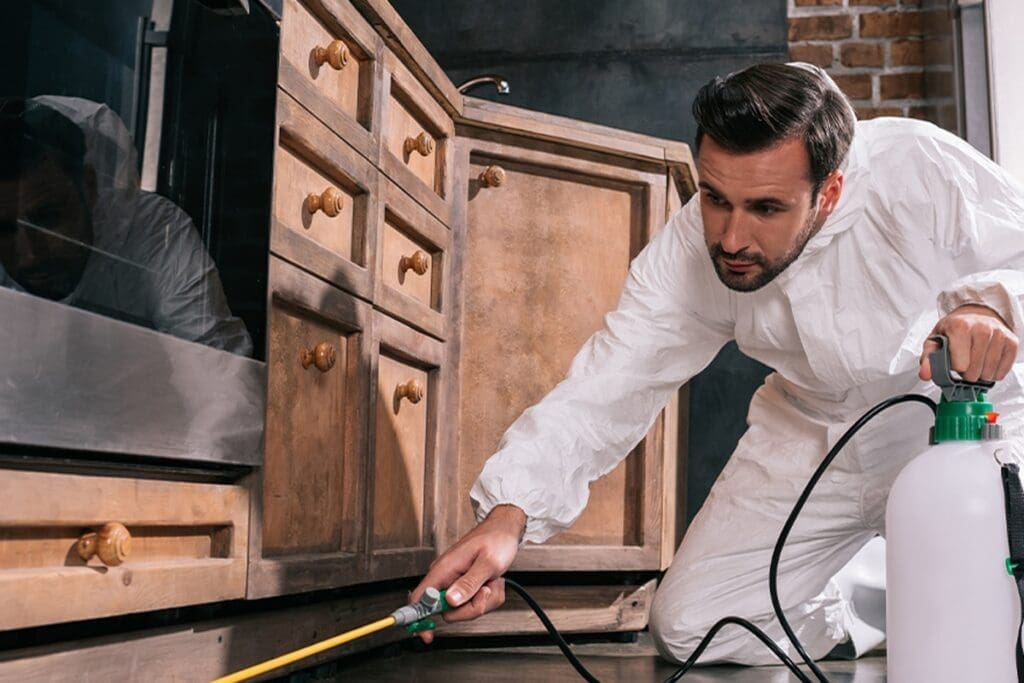

I am Randy, the author behind PestControld.com. Drawing from decades of experience, I aim to provide valuable insights, expert advice, and practical recommendations to help you make informed decisions when assessing viable pest control solutions.